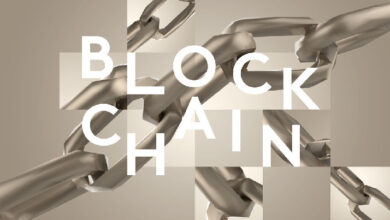Tether launches the Blockchain Education Initiative in the Philippines

Tether, the famous company that issues and manages the world’s leading stablecoin (USDT), has launched the so-called Blockchain Education Initiative in the Philippines.
Tether and @coinsph Collaborate on #Bitcoin & Blockchain Education Initiative in the Philippines 🇵🇭https://t.co/5Oeult4FTJ
— Tether (@Tether_to) April 10, 2024
The initiative is organized in collaboration with the Filipino crypto exchange Coins.ph.
The Blockchain Education Initiative, an initiative signed by Tether
The Blockchain Education Initiative aims to promote financial education on blockchain technologies, Bitcoin, and stablecoins.
Regarding the initiative in the Philippines specifically, Coins.ph will develop a series of tailored educational programs for a diverse audience, to enable Filipinos to acquire financial knowledge.
Among these educational programs there will be workshops, online campaigns, and interactive quizzes designed to increase awareness and understanding of digital assets and their potential benefits.
The Blockchain Education Initiative in the Philippines will be aimed at different segments of the population, including finance professionals such as bankers and fintech companies, as well as overseas Filipino workers looking for efficient solutions for remittances.
It will also be aimed at pawn shop owners and customers, or simply curious people interested in the basics of cryptocurrencies.
Tether and the Philippines
For some time now, Tether has committed to facilitating access to educational resources that promote understanding and responsible use of digital assets based on blockchain.
In fact, they are already active with similar initiatives in Thailand, Georgia, Uzbekistan, and in various parts of Africa, where the company has already activated other partnerships with the aim of increasing awareness and understanding of blockchain technology and stablecoins.
The goal is to provide citizens with the knowledge and skills necessary to thrive in the crypto sector, and embrace cutting-edge technologies such as stablecoins and peer-to-peer systems.
The choice, regarding the Philippines, fell on Coins.ph because it is one of the main crypto exchanges in the country.
It is worth noting that the pair with the highest trading volumes on Coins.ph is the one between the Philippine peso (the local currency) and USDT, which alone records higher volumes than the sum of the other three main trading pairs, ETH/PHP, USDC/PHP, and BTC/PHP.
The comment of the two CEOs
The CEO of Tether, Paolo Ardoino, stated:
“The Philippines is a nation rich in potential for the adoption of digital assets. Through this collaboration with Coins.ph, we hope to provide Filipinos with the knowledge and tools to navigate the exciting world of blockchain technologies. Tether is proud to lead a movement that combines cutting-edge technology, education, and financial inclusion.”
The CEO of Coins.ph, Wei Zhou, has added:
“Our collaboration with Tether marks a significant step towards providing Filipinos with the essential knowledge to participate in the growing digital asset economy. A key focus will be the use of stablecoins such as USDT for cross-border payments and remittances. This collaboration is in line with our mission to make financial services accessible and inclusive for everyone in the Philippines.”
The Philippines and cryptocurrencies: Tether drives innovation with the Blockchain Education Initiative
The relationship between the Filipino government and cryptocurrencies has not always been idyllic.
Despite several attempts to attract crypto and blockchain companies to the territory, and despite the Philippines having over 115 million inhabitants, the country has never become a true crypto hub.
It probably suffers from competition in Southeast Asia from Singapore, which, although very small, has attracted many crypto companies after the Chinese ban.
For example, the USDT/PHP trading pair on Coins.ph reaches just 4 million dollars per day, so the Filipino market is clearly a marginal market in the crypto sector.
However, Tether’s goal is to spread knowledge of new blockchain and crypto technologies in countries where they are growing, such as Thailand, Georgia, and Uzbekistan, without focusing too much on the extent of their current usage.
In just 10 years, the GDP of the Philippines has increased from 284 to 417 billion dollars, making it one of the fastest-growing countries in Southeast Asia from this point of view.
It is therefore possible that in the coming decades it could also become an interesting market for the crypto sector, especially if it continues to grow at this pace.





